Archive for Book Tour
Retailer Roundup for NIGHT ANGEL NEMESIS

We are just about one month away from the long-anticipated release of NIGHT ANGEL NEMESIS! That means you still have time to pre-order your copy– maybe even a signed copy– of the first book in The Kylar Chronicles. (OOoooooOOOOOOoooo!)
Now, you may be thinking, “My mind needs a good flaying! CAPSLOCK, where can I get one of these sweet, sweet hardcovers, so that I might run my emotions through a Midcyru meat grinder?”
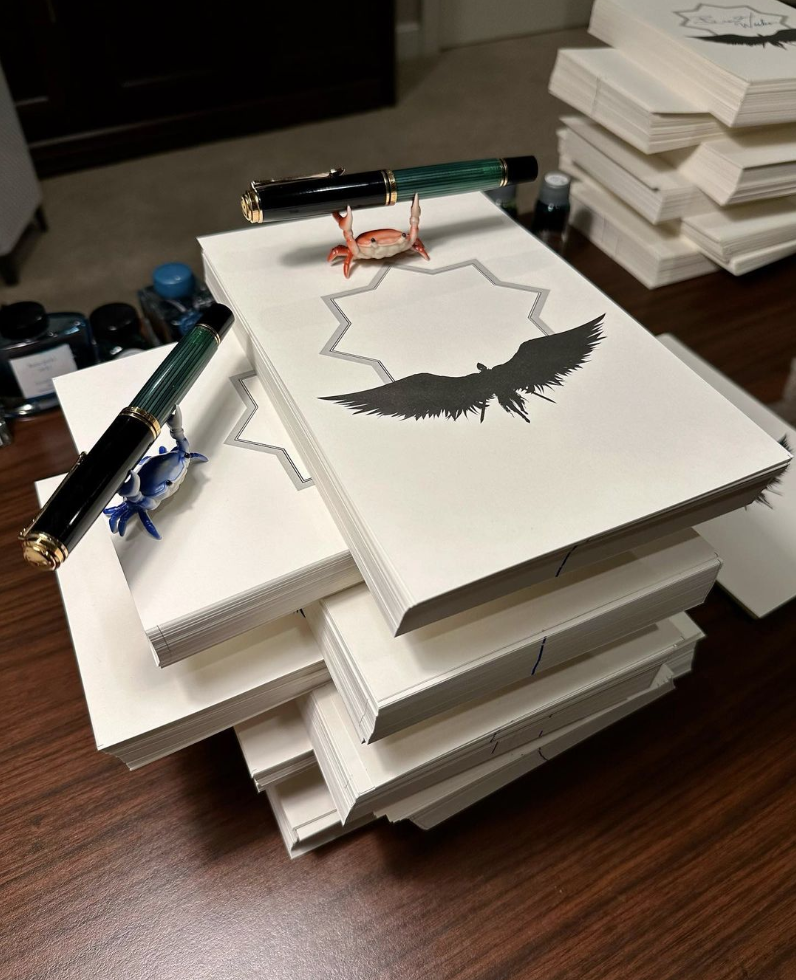
You’ve come to the right place, friend! See below for a list of retailers taking pre-orders. Please note that since some of these stores are tour stops, be mindful of which edition you are looking for when asking about availability (the pre-signed fancy-paged edition, or the not-yet-signed but gonna-show-up-for-the-man-himself-to-sign edition).
If there are any updates or changes, they’ll be noted right here. Go forth, minions!
Order Online (availability may vary):
The Signed Page (Online only, ships worldwide, signed copies)
Barnes and Noble (signed copies available; pre-order to enter their Nemesis Sweepstakes! Click through link for details.)
Books-A-Million (signed copies available)
Amazon (affiliate link)
*Powell’s Books (Portland, OR)
*University Bookstore (UW, Seattle, WA)
*Mysterious Galaxy (San Diego, CA)
*Tattered Cover (Denver, CO)
*Joseph-Beth Books (Cincinnati, OH & Lexington, KY)
Bookish (signed copies available; King of Prussia, PA)
VJ Books (signed copies available; Tualatin, OR)
Auntie’s Bookstore (Spokane, WA)
Schuler Books (Grand Rapids, MI)
Third Place Books (Various Locations, WA)
The Bookloft (Great Barrington, MA)
Vroman’s Bookstore (Pasadena, CA)
Indigo Chapters (Canada)
Forbidden Planet (UK; pre-order for a chance to win a signed map of Midcyru)
Waterstones (UK)
Big Green Bookshop (online, UK-based)
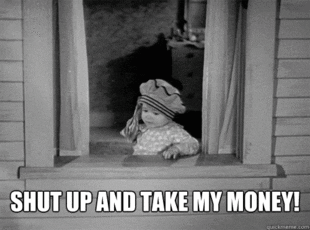
*Brent will be signing books in person at this location as part of the Nemesis Book Tour.
Lightbringer 10th Anniversary Extravaganza: Updates

We have exciting news to share with all of you (and who doesn’t need a bit of good news right now?!) regarding the Lightbringer Series and THE BURNING WHITE.
Throughout the month of August, we will be celebrating the 10th Anniversary of THE BLACK PRISM being unleashed upon the world, as well as the trade paperback release of THE BURNING WHITE–the stunning finale to the series.
THE BLACK PRISM ebook will be discounted to $2.99 through the end of the month. (This is Brent’s Amazon Affiliate link.) The trade paperback edition of THE BURNING WHITE is available now!
On release day (August 11), Brent was in conversation with the incomparable Joe Abercrombie, via Orbit Crowdcast. You can watch the replay on the home page.
Brent will ALSO embark on a virtual book tour via Crowdcast! He will be in conversation with more fantastic Orbit authors as follows:
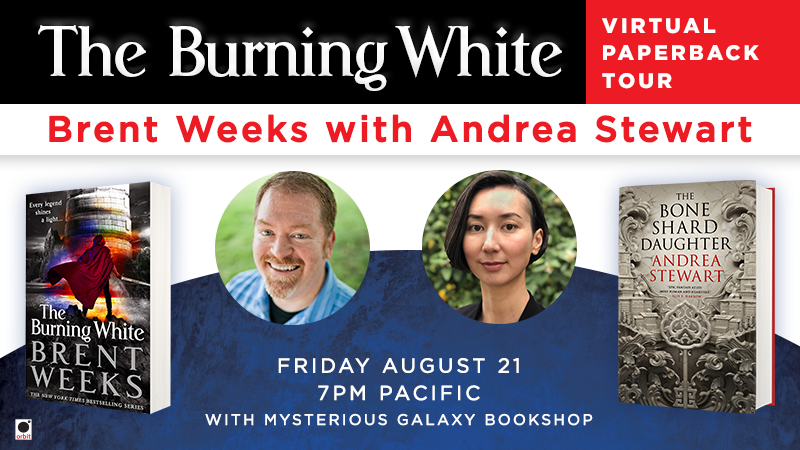
Andrea G. Stewart, author of THE BONE SHARD DAUGHTER
Friday, August 21 at 7pm PDT
Sponsored by Mysterious Galaxy
Register for the event on Crowdcast
.
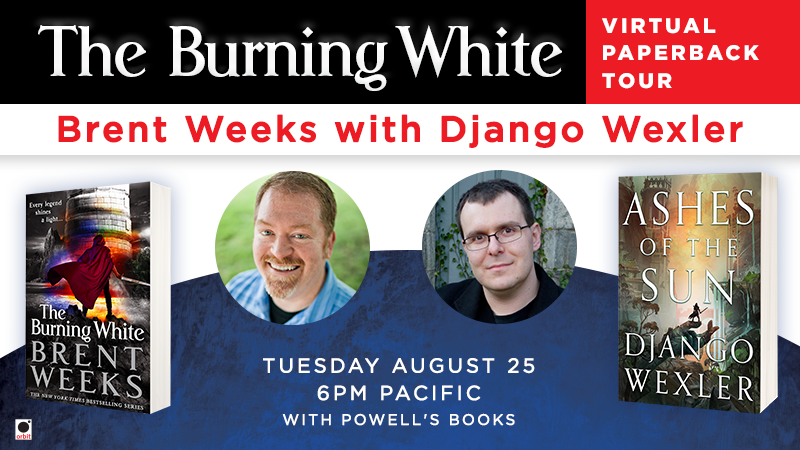
Django Wexler, author of ASHES OF THE SUN
Tuesday, August 25 at 6pm PDT
Sponsored by Powell’s Books
Register for the event on Crowdcast
.
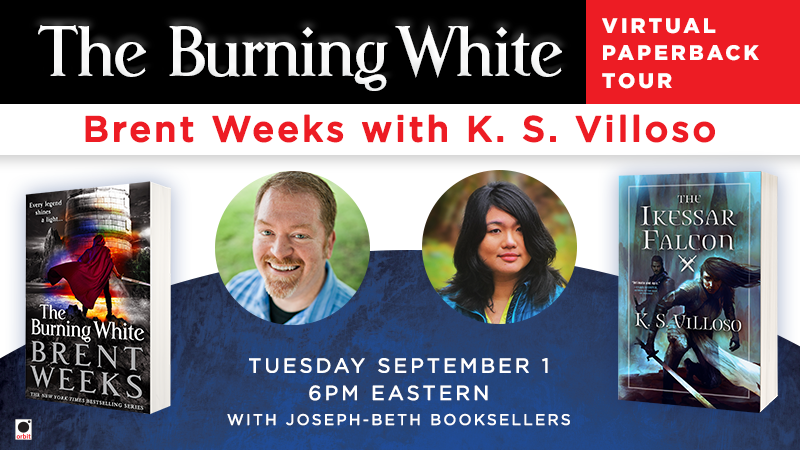
K.S. Villoso, author of THE WOLF OF OREN-YARO & THE IKESSAR FALCON
Tuesday, September 1 at 3pm PDT
Sponsored by Joseph-Beth Books
Register for the event on Crowdcast
.
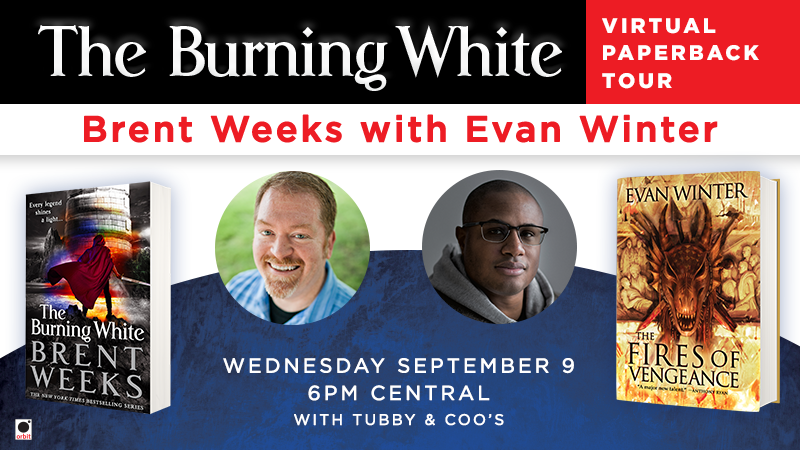
Evan Winter, author of THE RAGE OF DRAGONS & THE FIRES OF VENGEANCE
Wednesday, September 9 at 4pm PDT
Sponsored by Tubby & Coo’s
Register for the event on Crowdcast
.
More information regarding these events will be shared as they become available. Some details are subject to change, so stay tuned.
Celebrate Gavin, Kip, Andross, and company with us!

On Ending Well
Here are a few different ways for you to (hear/see/read) the half-hour talk I gave while on THE BURNING WHITE tour. We’ve uploaded the audio recording here (polished by Craig Hanks from The Legendarium Podcast), as well as a written transcript below. There’s also a video of the talk I gave at Mysterious Galaxy in San Diego on my YouTube channel. It’s kind of like a choose-your-own-adventure, but the adventure is pretty much the same in each medium.
Without further ado:
On Ending Well
I’ve put you into the heads of a lot of extreme characters over the years: the leaders of magical orders, assassins, emperors, rebels, prisoners, and… chubby ursine turtles.
But today I aim to do something far more challenging: today, for the next 29 minutes, I want to make you a mild-mannered, bespectacled… demi-god.
[at this point, I put on my reading glasses… or spectacles, if you will]
It took me from age thirty-one to forty-two to write the Lightbringer Series, and for a good chunk of these eleven years I’ve been working on how to end it well. So today I’m going to talk about endings: first an author’s experience of an ending, then the reader’s, and then what we might learn from those.
Buckle up.
Imagine you’re an author of epic fantasy, cruising down the story-telling freeway. 85 miles per hour… 95… 110…
You push the car to its limiter.
(As a younger writer, driving a 1993 Acura Legend out on the empty plains of Eastern Montana, the car starts to get squirrelly at about 120 miles per hour, but the limiter doesn’t kick in 135.
True story. Yes, I was young and stupid once.
Mercifully, I am no longer… young.)
But now with some experience under your belt, you’ve traded up. Learned a few things. Now your narrative daily driver is a new 750 horsepower Porsche Taycan.
And you’ve picked up some skills over the years. Beginnings? You can jet off the starting line better than most. Frankly, you might not be best in the genre at beginnings, but you’re good enough to enable your middles: Now, many writers hate middles, hate middle books, despise what they call “the middle muddle”.
They tend to get lost. They take wrong turns.
Not you. This is where you and most epic fantasy writers shine.
With you at the wheel the engine roars as it climbs the narrative peaks, growls through the downshifts as you enter the curves–and it sings as you come flying out of the twists. You are the master of the road, weaving through plot-complication traffic with ease, hopping from Point-of-View to Point-of-View like a stuntman leaping from car to car in those cinematic masterpieces: The Fast and The Very Angry.
But then you see it.
You always knew it was coming. It shouldn’t be a surprise.
But you hadn’t quite realized it would look so… daunting.
Right after the next mountain pass, straddling the road, stretching from the east to the west, high enough to blot out the sun: a wall.
On the wall, emblazoned in fire: two words. THE END.
One of your passengers yells, “Woohoo! I can’t wait!”
Passengers? You have passengers now? Where’d they come from?
Oh, that’s right, you picked up your readers’ hopes and expectations somewhere along the way. Maybe… maybe you made some rash promises about your destination.
Maybe you let people assume things: like that a trilogy would have only three books.
Maybe they assumed that since you were so good at beginnings and middles that surely you must be equally good at endings.
Well, at this point, you don’t have a whole lot of choices. You can…
A. Stop the car in the middle of the road and pretend it’s normal and of no concern that that black smoke is billowing from the engine.
Or–wait! There’s a choice B: an off-ramp: write more sequels!
“I, uh, I’m gonna take us through those mountains,” you say, “We’ll come into that ending from a much better direction.”
Whew. This not only buys you time, it has the added advantage of maybe even being true.
When I wrote the first draft of Lightbringer 4, it was over 1600 manuscript pages long–and that WAS the short version.
You don’t want to write the short version. A mere 1,600 pages? What are you, a writer of Cliff Notes?
You are a successful epic fantasy writer, and you don’t climb molehills, you climb the continental divide, tires squealing on Going to the Sun Road in Glacier Park, drifting around hairpin turns, frightening pedestrians into leaping from the cliffside road at your perilous passage.
[Aside to Falling Pedestrian] <Sorry! I was willing to sacrifice you for my art!>
After all, if you were happy with leaving rich valleys of conflict unexplored, you’d have simply taken an airplane to your destination, rather than driving through the mountain passes five times.
But, whether you add two books or eleven, The End looms.
Now, you’ve written “the end” before–after each mountain peak. But an ending, and The Ending are categorically different. An ending aims at only partial reader satisfaction. An end of an epic fantasy book in the middle of its series is working perfectly if the reader says, “That was great… but I still really wanna know…”
The End is different.
And if you do add more books, you shouldn’t be too surprised when your passengers start asking, “Are we there yet? You aren’t lost, are you?”
It seems now your Porsche Taycan has morphed: into the still-sporty Tesla Model X. How’d that happen?
Well, you did keep picking up quirky hitchhikers, then let them navigate for a chapter or two, and eventually they became Point of View characters.
Then… well, you added so many subplots, you had to make that stuntman’s leap over into one of those 15-passenger Mercedes Benz vans they call a Sprinter. (A name that proves, contrary to popular belief, that the Germans do appreciate irony.)
Still, with your expertise and sheer guts, you get some surprising handling out of that sucker, but the margin for error shrinks.
Want to get off to a quick start with a novel late in the series? Not so fast, bucko. Some fans have just read (or re-read) the previous book. They’re ready to go! But other fans haven’t read that book in two or three years! They’re gonna need an on-ramp to get them up to speed.
But if you start slow to let those kids find their seats and buckle up, you just know the other kids are gonna get bored–and you do not want bored kids on a school trip, flinging Cheez-its at each other’s heads and making fun of the driver.
So somehow now you’re now driving a souped-up school bus down the last mountain pass. This is one bad-A bus, but it’s still a bus: A bus crammed full of readers bouncing up and down, kicking the seats, some of them staring in completely the wrong direction, as if you promised to drive them to the moon rather than the verdant plains of the ending.
Oh, and now that you look around, you’re not just driving a bus: Now you’re leading an entire race team. You need to get them all to the finish line at the same time. Every subplot has to matter to the main plot, every character you introduced with such reckless joy in the last 1.4 million words needs to show that they were there for a purpose. Everything needs to be addressed–not necessarily tied up in a neat bow, but acknowledged, and done so in a manner that makes sense chronologically, relationally, logically, emotionally, thematically–and also puts the right characters in the lead when you finally cross the line.
The intellectual effort of weaving everything together in the final book is like taking the SAT.
Six days a week. For three years.
But as you get the team in order, making sure everyone’s in their places–you may also see that your readers have somehow blurred themselves into your characters.
When we read a good book, first, we’re drawn into a scene. By degrees, we trade our reality for the book’s reality: the feel of the chair under us, the slightly-too-cold air of the room we’re sitting in, the weight of the pages in hand or the pixels on the screen–they all disappear as we come to stand in a new world, surrounded by new people.
This just by itself is a marvel.
But with certain books, the ego dissolves further still: the reader doesn’t simply float like a ghost observing a wonderful cast playing make-believe together; instead, the world becomes real, and the reader becomes friends with the characters. Their thoughts and emotions blend with each other’s. In a way, they become the characters, maybe identifying more with this one or that, but the reader’s soul expands to hold new personalities, new ways of thinking, new ways to grow.
So now you’re driving a bus filled with readers’ hopes and with their very souls. And you’re driving… At a wall.
Your characters are staring at you. They know.
When you hit the ending, some of them may die. And all of them are going to be put on ice. Maybe you’ll revive some of them someday in a sequel–but, what are the odds? They know, no matter what, for them things will never be the same.
The ending is their end.
They are part of you, and your adventures together are almost over.
Some readers understand what’s coming, and don’t want it: You get emails saying, “Can’t you just write these books forever?” or “How about seven books, or nine! That’d fit the colors, Brent!”
They’re not wrong. There are ten thousand ways to write a finale, and maybe twenty that could be satisfying. Some of those satisfying ways would require seven books, or nine–but if you change the plan, you’ll have to make the trade-off that some subplots will have to get padded or even ignored for a book or so.
Maybe you’ve seen this: the main character shows up in the first scene, and then disappears until the last scene? Or a book gets split into half of the Points of View, with the other half not coming until years later?
It sounds like I’m throwing shade. I’m not. When a series grows in length and complexity past a certain point, it gets to where certain things are impossible because of the structures of fiction and human psychology itself. You don’t blame a bus driver for not being able to pull wheelies or split lanes or park in a space six feet wide.
At some point, there are simply trade-offs that must be made–and those get exponentially more difficult after you pass a million words and seven or so fully-developed point of view characters.
Each reader may have a different perfect potential ending in mind. Many of those are literally impossible–but even out of all the possible satisfying endings, you can only deliver one.
Like a Domino’s delivery driver, you’re going to race up to the party, and someone’s going to open the pizza box and grunt: “When I told you on the phone to surprise me, I didn’t mean add olives!”
Someone else will say, “I know I never mentioned I needed it, but this is gluten free, right?”
Someone else: “Ugh. Cheese? On a pizza? This is Portland, man!”
But you, writer, are fearless. You will not pad your novel. You will make the tradeoffs that you judge to be the best, even knowing some backseat drivers will criticize them no matter what.
So you swerve past the stopped busses of those authors whose nerve or art has failed them, you roar past the burned-out wrecks of series that ended poorly, and with everything in you shouting defiance, you ram into that wall: The End.
There’s an explosion here, and not everyone survives.
The readers’ hopes?
Dead.
There’s no longer, “Maybe this extraneous detail will make all the difference” there’s no more, “Maybe this bloated section is actually the lynchpin to the whole thing!” there’s no more, “I hope we get lots of pages with this character, they’re the best!”
There’s no more “I really think the author ought to–“
No more “This character really ought to–“
There is no more ought. There is only is.
Your hands are off the wheel.
The characters are finished. Alive or dead, well-served or ill-used, their time is past.
Step away from imagining you’re the author now, and imagine your future self reading the end of this series or some other.
You, the reader, are thrown clear in the blast, your soul ripped away from the temporary fictional minds and bodies you inhabited for so many hours.
Some people call this the book hangover. I think it’s worse than that.
And I think it hits particularly hard in a series that’s being written as we read: As we read an ongoing series, we see the characters change, and as the years go by, we’re changing, too.
In a very literal way, many of us grew up with Harry Potter.
So this is a kind of bereavement: The characters STOP, and reader has to go on without them. What consolation is there in this:
[dumb voice] “Your make-believe friends aren’t dead, you can re-read! Cherish your memories!”
Thanks for nothing.
I don’t want to cherish old memories of my friends; I want to make new ones with them!
This is why we mourn the end.
Our soul rises from this dead paper on the operating room table, and in the burning white light of the book afterlife…
In the burning white–who wrote this?!
Ahem.
In the plain old regular white light of our book afterlife, we can at last see the whole story revealed, and therefore judge the whole.
Now, our first questions after we finish reading might be technical and trivial: “Did we ever learn what the one woman did?”
“How’d that one guy get here?”
“Does this line mean that these two are going to get together someday?”
But at some point, most of us give ourselves permission to feel.
Here we enter a mystery.
Here, for a few precious moments, we stand on holy ground as we grieve, grapple, and reintegrate ourselves.
Three things come together here: the author’s skill, the reader’s skill, and Truth.
Most criticism engages only one leg of a tripod: how well did the author write? It’s a worthy question, if a limited and simplistic one–I say we have to add at very least “for whom” to that question. T.S. Eliot is going to fare poorly if you judge it as children’s literature–oddly, most kids just can’t make head or tail of the sections written in Sanskrit. Similarly, you’re really going to have to stretch it to write a dissertation on Dr. Seuss–though now that I say it, I’m just sure some sad sap out there has written a paper casting HOP ON POP as a post-structuralist attack on the patriarchy.
Regardless, as a professional, I spend the bulk of my time worrying about writing well–for all sorts of different audiences, simultaneously.
But there’s a second leg: how well did the reader read? And this isn’t always a question of intelligence or education. A critic who has to review a hundred books a year can easily get bored working through ninety-nine Grim-dark Gore Festivals, or ninety-nine Dystopian Young Adult Novels with a love triangle and a bland heroine—thus it can be easy for that critic to fall into valuing novelty above all else–even if the one novel novel out of a 100 kind of stinks in many respects.
Or a certain literary style may simply not be in vogue: The highly intelligent and learned members of Nobel Prize committee rejected Tolkien in the early 60’s, saying that the Lord of the Rings quote, “has not in any way measured up to storytelling of the highest quality.”
But that kind of tragic cephalorectal insertion isn’t the only reason one can read poorly:
When I was a child, I hated the ending of The Lord of The Rings.
Now don’t get me wrong: I read those books over and over. I loved them.
Even as a child, I could tell it was by design that Frodo couldn’t go really back to the Shire. Ultimately, he couldn’t even stay in Middle Earth! He’d won the war but was scarred forever by it, even crippled; the end felt tragic rather than triumphant.
AND I DIDN’T LIKE IT ONE BIT.
This fantasy was telling me truths about war and suffering and sacrifice, and I rejected it–because I didn’t like the truth.
So why did I re-read?
Because of the third leg of the tripod: there actually are fair criticisms to be made of Tolkien’s narrative choices, and my own reading skills had a lot of maturing to do, but his story resonated.
Deep calls unto deep. Something in those pages was true and beautiful.
There’s this saying that if you want to teach someone how to spot counterfeit $100 bills, you don’t show them a bunch of different counterfeits to study all the little errors possible; you have them study the real thing closely. Then when you show them the counterfeit, they’ll just be able to sense that something’s not quite right.
That was me with Tolkien. Tolkien was the real deal. I would read him, then go to some other fantasy author, often get that sense of encountering an imitation rather than the thing itself–and then I’d go back to Tolkien, bummer ending and all.
So when you judge a book or a series, I’d encourage you to listen to your intuitions. They’ll tell you if you’ve encountered a counterfeit, even if your mind can’t quite tell what’s wrong.
As you finish a story, what do you want for these characters you love? Maybe justice? Or perhaps justice mixed with mercy. Maybe a lot of mercy. But not too much–it’s gotta feel like those characters did their part, like what they did mattered.
If it’s too tidy, too easy, we reject it. It doesn’t feel real.
Now someone might point out that that’s kind of a funny objection: A make-believe character doesn’t feel real?
But just because it’s make-believe doesn’t mean it’s not True.
So listen to your whole self when you close a book. Listen to what happens inside:
Maybe you were pleasantly surprised by that twist, or maybe you saw it coming from miles away–but either way, after you think about it for two seconds, you can’t imagine the characters would have been surprised. The author’s skills failed–or maybe they just got lazy.
Alternatively, maybe the ending is clever, or edgy, or original but it infuriates you. It satisfies your head, but not your heart. The author didn’t give you what you really wanted deep down, or maybe what they had to tell you isn’t true.
Or maybe the ending was happy, but the characters didn’t really earn it. The author gave you what you wanted, but not the way you wanted it. Maybe what you wanted for these characters doesn’t ring true with what they’ve done or who they’ve been.
Or maybe–as happened to me with Tolkien–an author will tell you an unwelcome truth. You might have to make peace with it. You might come to say, “I hate that this thing happened to this character because I love her, but it really is the only way it could’ve worked out.”
Maybe you’ll nod your head even as you purse your lips. “Yeah. This character suffered cruelly all the way through, but in the end…”
In the end…
Isn’t it interesting how much value we place on how a story ends? How the ending shapes our judgment of the entire work?
Hamlet tells his best friend, “There’s a divinity that shapes our ends, rough hew them how we will.”
And whether we believe there’s a divinity or not, most of us would like it to be true that someone out there cares about our story as much as we care about the stories we read.
What does it mean that we seem to structure our own messy lives into stories?
“Hey Mom, tell me the story again about how you met Dad.”
“Grandpa, will you tell us one of your war stories?”
“Hey man, tell me that one again about the chihuahua and the sleeping pills.”
We tell other people stories about ourselves, and we even tell God stories about ourselves:
Something like twenty-eight hundred years ago, a guy named Nehemiah wrote out part of his own life’s story, probably with his own hand, and he stops the narrative to throw in this aside to God. He says, “Remember me… my God, and do not blot out what I have so faithfully done…” He’s got his quill, writing, and he uses the term ‘blot out’ as if there’s an ink blob on the page.
He’s understanding his own story as if there’s an Author, and he’s saying, “Hey! God! Look, even if I’m a minor character in this drama, can you please tell me that what I’ve done matters?”
Tell me I’m not a redshirt.
We even tell ourselves stories about ourselves.
Some of you might have one that goes like this:
“Yes, that terrible thing happened to me when I was a kid. It wasn’t my fault, but it screwed me up for ten years. Even after I knew better as an adult, it still screwed me up in year fifteen and sixteen and eighteen, but in year twenty, I finally kicked that thing to the curb. Now I’m starting a new story, and things will be different for my kids.”
Inciting incident, setbacks, climax, resolution. The end.
If your story goes like that–good job! Congratulations. That’s a great story.
And its ending matters. I wouldn’t want anyone to judge you before they get to that resolution.
What we want in our fiction: what we want for these characters we love, what we hope the Author/demigod gives them is nothing less than what we hope for ourselves, in real life: Will the universe notice that I made good? Will God blot me out, and delete my meandering little subplot? Or is He shaping my end, despite all this rough hewing I’m doing?
When a series ends, our egos that were dissolved in the narrative will float back to our own lives. We will put ourselves back together; we will go on.
If a story isn’t written well, if we don’t read it well, if it doesn’t feel true, then it isn’t going to become part of us.
If there’s nothing there to wrestle with, nothing that pushes us or pulls us away from where we’re standing right now, then it won’t move us.
It won’t change us.
We’ll happily close a second-rate beach read and say, “Ah! I’m so happy that Frump Girl ended up with that hot young billionaire! Wouldn’t that be nice if things really happened like that? [*sigh*]
Okay, what’s for dinner?”
With Lightbringer, I have dared more.
Daring isn’t worthy of the name unless the tightrope is suspended, netless, over a chasm of possible failures.
I admit, here at the end, that what I brought to the pages of the Lightbringer Series may well have been more Ford Taurus wagon than Porsche Taycan, but I’ve taken my jalopy and put the pedal to the floor.
I haven’t only pushed my characters past breaking; I’ve stretched my own skills to their limit, and I’ve come to the end of myself.
Seeking to bring you light, at times in writing these last two books, I have literally locked myself in my office, lights out, with blackout curtains drawn and only a computer monitor to illuminate the room to help me focus for sometimes fourteen hours a day, sometimes seven days a week.
(Not healthy. Don’t recommend it.)
At times, I wondered if these books were going to cost me my marriage. I’ve lain awake at three am with chest pains radiating down my arm, trying to convince myself this was just a panic attack–but wondering if writing this book was literally going to kill me.
I have given everything I have to write a series that, to be frank, has many imperfections–but it also carries all my skill, all my courage, all my passion, and all my joy.
This story has been part of me for many years now, but now my time with it is finished.
Now, with fear and trembling, but also with faith and excitement, I hand it over to you.
You will come to this story’s end in a few weeks, or perhaps only days or… already? seriously?
But… if I have wrought well and you read well, this story won’t die.
In mysterious ways, it may live on, integrated into your story in the way you Turtle-Bear your way through a season of suffering, in the way Karris’s fierce faith inspires you to keep fighting, in the way you get back up one more time after you’ve failed again and again, in the way you take one courageous step toward reconciliation with someone you love.
It has been a terror and also the highest privilege I can imagine to be given the chance to make something beautiful and true for you.
This story is mine no longer; now it is yours.
I hope it brings you light.
-Brent Weeks, 2019
ICYMI: Video from Powell’s, 22 Oct 2019
We shared a video of Brent answering some audience questions on Facebook Live a couple of weeks ago. It was recorded at Powell’s, during the book launch event for THE BURNING WHITE.
Many of you were sad to have missed this, since it aired around 7:30pm PDT–which was 10:30pm on the east coast, and something like 3:30am in England.
We heard you, and we’re sharing the recording here… Now. Like, right now. See? It’s right there! ↴
Also, the video has been polished a bit, so there’s no dizzying camera turn ten seconds in, and the high-pitched ringing is mostly gone.
TBT: Lightbringer Edition, vol VI
This week’s TBT celebrates Halloween, Lightbringer-style!
Plus a few more of our favorite Lightbringer costumes from the last decade:
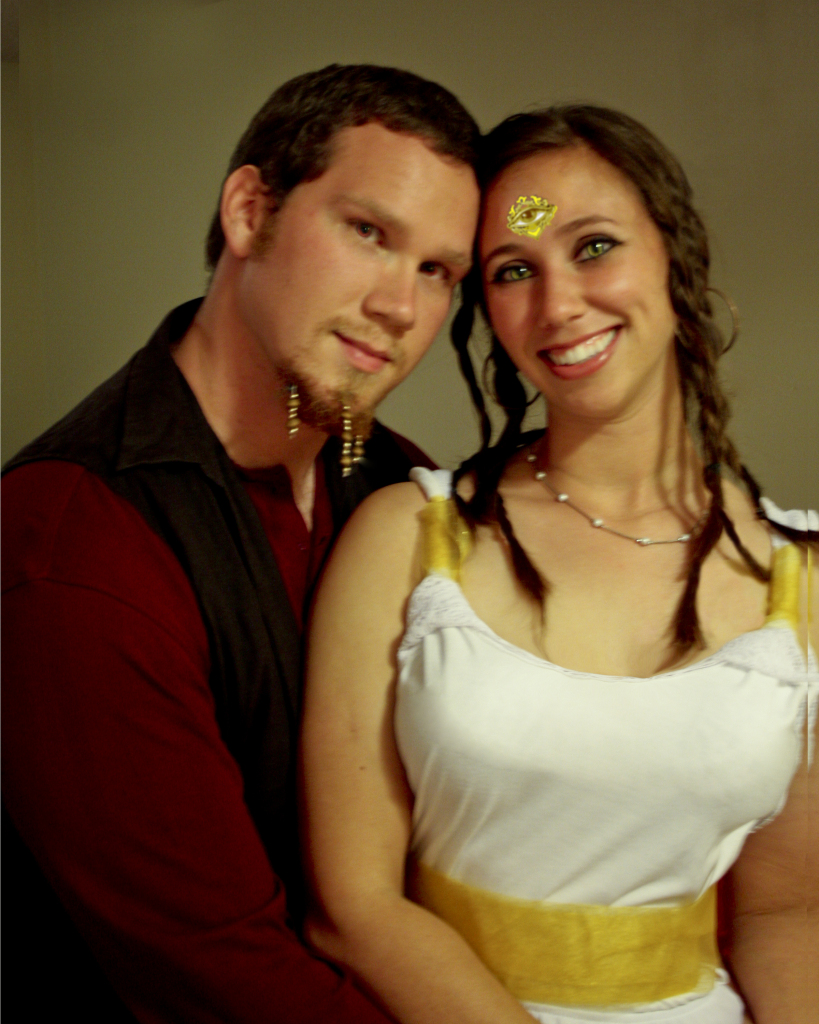
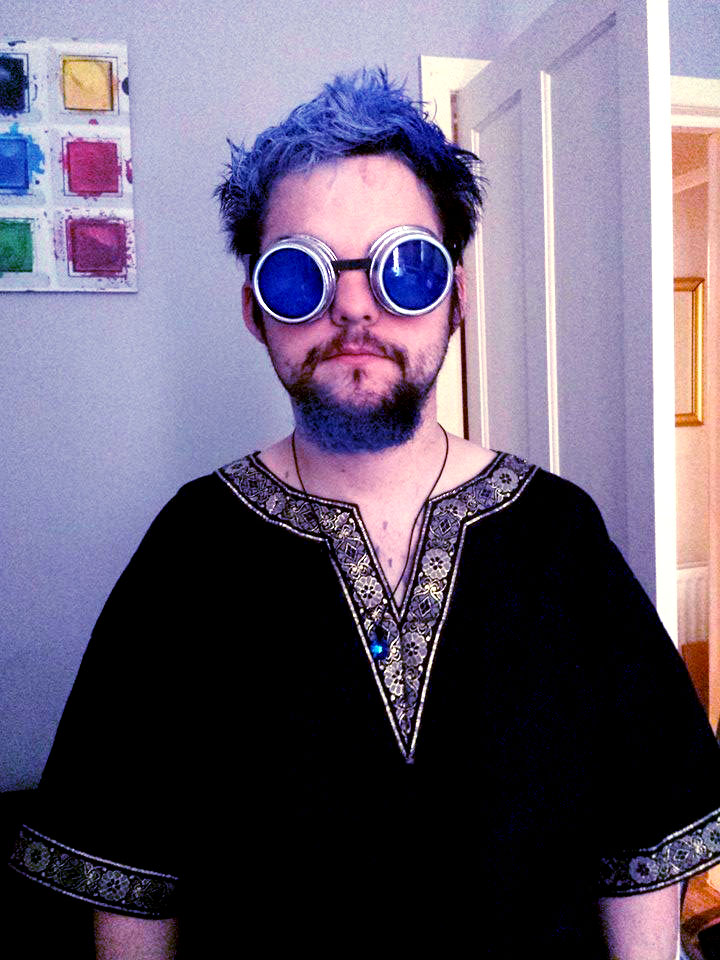
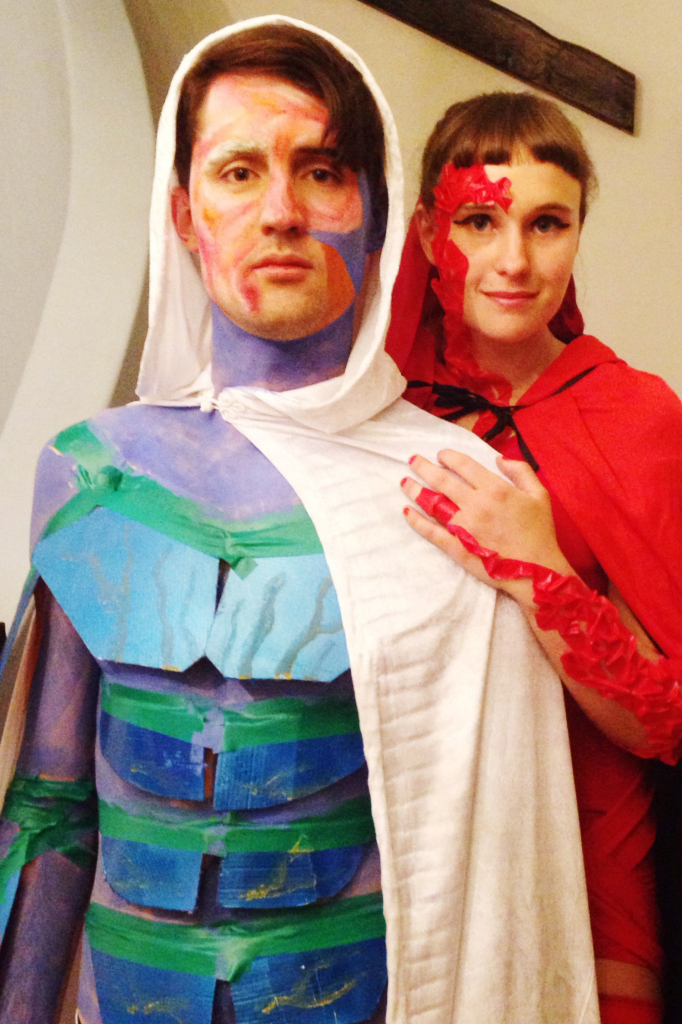
Fan Art Tuesday: Tour Magic
Well friends,
The White Hot Book Tour is officially over. It was exhilarating, and exhausting, and inspiring, and resplendent. One for the ages.
And it included some really lovely artwork from fans. Like this fun illustration of Gavin:
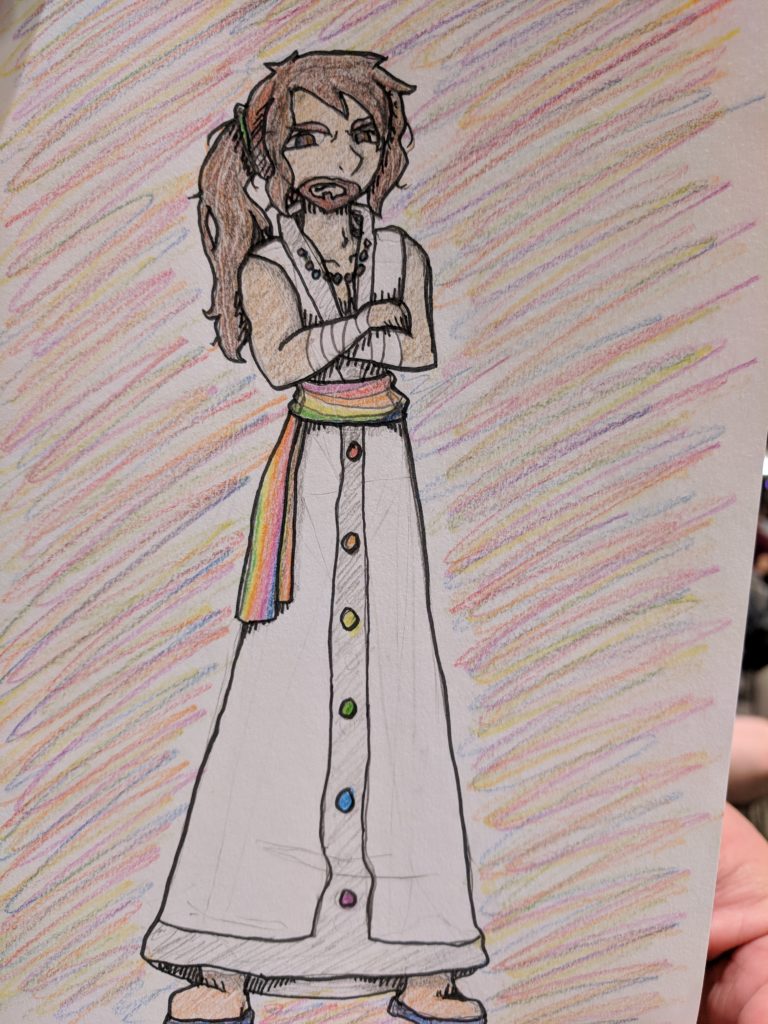
A fan gave this to us at Powell’s. I snapped a picture to share here.
“So CAPSLOCK, who exactly was this fan? Does she have any other work online?”
Ummmmmm, I forgot to ask. Ever true to form.
Any way, this is my segue into a reminder that we are holding a Nine Kings Fan Art Contest, and you should enter! Click through for details.
Also, I’m here to remind fans in the US and the UK that you still have two days to enter the Orbit Loot Giveaway, if you haven’t already. The ONLY WAY to get this prize–an exclusive Lightbringer hardcover box set–is to enter the giveaway. All you need is an email address!
TBT: Lightbringer Edition, vol V
Where to Get a Signed Copy of THE BURNING WHITE
Hi friends,
We heard a rumor that you’re looking for a retailer who will let you pre-order a signed copy of THE BURNING WHITE.
Look no further! Below is the list of booksellers who will have limited quantities of signed stock (with the fancy designed page in front).
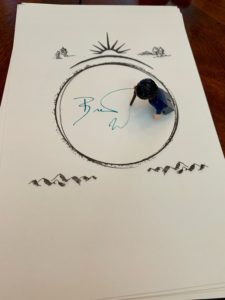
These beauties are selling like hotcakes, so politely inquire with your favorite friendly bookseller what is available for pre-order. Please note that since some of these are tour stops, you should specify which edition you are looking for when asking about availability (the pre-signed fancy-paged edition, or the not-yet-signed but gonna-show-up-for-the-man-himself-to-sign edition).
If there are any updates or changes, they’ll be noted right here. Go forth, minions!

Order Online (availability may vary):
The Signed Page (Ships internationally): https://bit.ly/2MSI6iI
Indigo (Canada): https://bit.ly/2YJk7Kh
Waterstones (UK): https://bit.ly/2MQzoBJ
VJ Books (Ships internationally): https://bit.ly/2KOlDR8
Barnes and Noble: https://bit.ly/2kpywIp
Call or In Person
These stores have ordered stock of the signed editions with the special inscription plate. Stop-in or call for details before ordering – the editions listed on their websites may not be the signed ones. If the listing is marked with a (*), make sure to specify that you’re looking for the pre-signed edition.
Alexander Book: San Francisco, CA
www.alexanderbook.com
Auntie’s Bookstore: Spokane, WA
https://www.auntiesbooks.com/
Book Shop Santa Cruz: Santa Cruz, CA
https://www.bookshopsantacruz.com/
The Bookloft: Great Barrington, MA
https://www.thebookloft.com/
Joseph-Beth Books: Cincinnati, OH & Lexington, KY
https://www.josephbeth.com/Landing.aspx
*Mysterious Galaxy: San Diego, CA
https://www.mystgalaxy.com/
Mysteries on Main Street: St. Johnstown, NY
https://www.facebook.com/MysteriesOnMainStreet/
*Powell’s Books Inc: Various Locations, OR
https://www.powells.com/locations
Schuller Books: Grand Rapids, MI
https://www.schulerbooks.com/hours-and-locations
*The Tattered Cover: Denver, CO
https://www.tatteredcover.com/
Third Place Books: Various Locations, WA
https://www.thirdplacebooks.com/
Uncle Hugo’s SF Bookstore: Minneapolis, MN
http://www.unclehugo.com/prod/index.shtml
*University Bookstore: Seattle, WA
https://www.ubookstore.com/
Vroman’s Bookstore: Pasadena, CA
https://www.vromansbookstore.com/store_locations
*I’ll be signing books in person at this location as part of the White Hot Book Tour.
August Q&R video, White Hot Tour Dates
Hi friends!
Brent held the August edition of his monthly Q&R on Facebook LIVE last week. In case you missed it, see below, in all its unparalleled glory:
Aaaaaaaaand, we’ve announced details for Brent’s upcoming White Hot Book Tour, to promote The Burning White. Check out Brent’s events page!
If you’re going to one of Brent’s tour stops and you use Facebook, be sure to RSVP to the FB event and put the date on your calendar:
